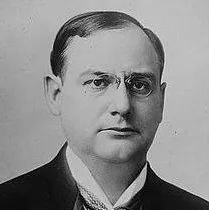
Editor’s note: Following is the first part of a story series by contributing writer Brent Engel.
Champ Clark wasn’t the only Missouri politician who wanted to be president in 1912.
Former Gov. Joseph Folk vowed to grab the Democrat endorsement from the Bowling Green attorney and Speaker of the U.S. House.
Folk grew up in Tennessee, the seventh of 10 children. His father, Henry, was a teacher, lawyer and minister. His mother, Mattie, authored an advice book entitled “Heart Thoughts” that included a chapter on how to make men out of boys.
“Sublime heights are only reached by clinging trust in God,” she wrote. “Incite him to good deeds and noble actions. From pleasant homes with manly principles instilled within their hearts go forth heroes buoyed by hope, who will successfully battle with life.”
Folk graduated from Vanderbilt University in 1890 and came to Missouri three years later to work at his uncle’s St. Louis law firm. Elected governor in 1904, he was a progressive who fought for legal, business and social reforms.
“No government was ever better than the people made it, or worse than they suffered it to become,” Folk once said.
A strict Baptist, the governor earned the nickname “Holy Joe” for advocating “The Missouri Idea” – the belief that the state could be a moral leader for the nation. He fought to close taverns on Sundays, make racetrack gambling illegal, strengthen bribery laws, reform elections, prosecute anti-trust cases and curb corruption.
The governor’s “list of legislative accomplishments was an impressive one,” wrote biographer Steven L. Piott.
With almost a year left in his gubernatorial term, Folk announced a challenge to incumbent Missouri U.S. Sen. William Stone in the 1908 Democrat primary.
“The senate does not now enjoy the confidence of the people and it needs a few members like the man who has made the greatest governor the state has ever had,” the Louisiana Times proclaimed in its support of Folk.
The two candidates were rivals even before the campaign, so the race was vitriolic. Stone charged that Folk was too independent, uncompromisingly rigid and overly ambitious.
“To me, the thought is repulsive of painting myself as a shining light, as a colossal ego,” said the senator, who described himself as a “plain, blunt man – an average citizen – neither better nor worse than any other man.”
Folk stuck to touting his accomplishments, principles and abilities, and ignored charges that Stone had been corrupted by special interests – an allegation that led opponents to call the senator “Gumshoe Bill.”
“Let us seek as a remedy for existing evils not less democracy, but more democracy; not more money, but more manhood; not more cunning, but more conscience,” he said.
The contest shined a national spotlight on Folk, whom the Ray County Review said had “laid down the principle that a criminal has no politics.”
Folk held rallies around the state while Stone rarely spoke, but in the end the incumbent won by almost 16,000 votes. Stone would hold the seat until his death in 1918.
Just after the 1908 election, the Mexico Ledger was among papers saying that Folk still had a bright future.
“He is a young man, and for years to come he will be an important factor in the political fights in this state.”
Next time: A legitimate claim.